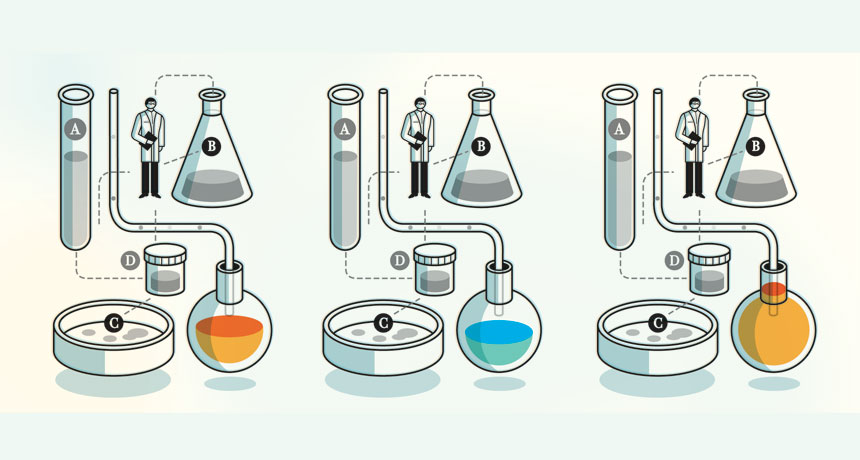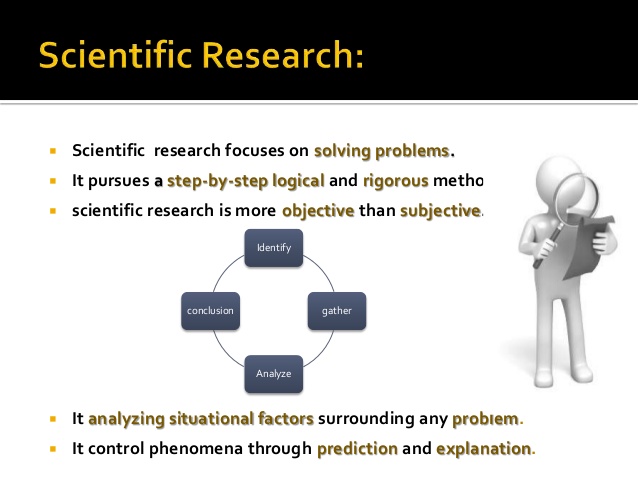20004
Manuscript
submission
7004
Publish Research
Papers
35%
Acceptance
Ratio
100
Articles from over
100 Countries
Dama Academic Scholarly Journal of Researchers endeavors to promote and disseminate knowledge in the complex multi-disciplinary management, Science, and Technology field. The journal encourages theoretical and empirical research papers and articles of relevance to both academicians and practitioners. It is a double blind peer reviewed International Journal. All research articles submitted to Dama Academic Scholarly Journal of Researchers should be original in nature, never previously published in any journal or presented in a conference or undergoing such process across the globe.
Dama Academic Scholarly Journal of Researchers is a double reviewed monthly online journal that accepts research works from scholars, academicians, professors, doctorates, lecturers, and corporate in their respective expertise of studies. Work after publication will be retrievable on the website bifurcated based on issues of the month and its publication date. Moreover, the journal serves the research world since December, 2015.
All the submissions will be peer-reviewed by the panel of experts associated with particular field. Submitted papers should meet the internationally accepted criteria and manuscripts should follow the style of the journal for the purpose of both reviewing and editing. Dama Academic Scholarly Journal of Researchers is a broad-based open access publisher, is based on two fundamental principles: to publication of the most exciting research regarding the issues of our functional Journals and to provide a rapid turnover time to review, publish and disseminate the articles freely for teaching and reference The journal is wide and available for diverse intellectual and educational pursuit from all corners of the society to enrich the learning experience of the group readers.
The periphery of the subject areas includes:
| Accountings | Finance |
| Management Accounting | Business |
| Commerce | Corporate Governance |
| Financial Accounting | Arts |
| Fine Arts | Designing |
| Medical | Bio-medical |
| clinical research | home science |
| Medical science | Psychology |
| Human ideology | Sociology |
| Economics | Education |
| Engineering | Electronics |
| Electrical | Information technology |
| Computer Science | Management |
| Organization Behaviour | Organization psychology |
| Marketing management | Law |
| Corporate | Human Resources |
| Geography | History |
| Intellectual Property Rights | Industrial Laws |
| Journalism | Literature |
| Philosophy | Pharmaceutical Science |
| Political Science | Rural India |
| Statistics | Social Sciences |
Dama Academic Scholarly Journal of Researchers applies a double blind peer review. Referees remain anonymous for the author during the review procedure and the authors name is removed from the manuscript under review. Only after publication, and only with the permission of the referee, the names of the reviewers are published in the article.
Each article is first assessed by two of the editors of the editorial board and, if it is judged suitable for Dama Academic Scholarly Journal of Researchers, it is sent to two or three external referees for a double blind peer review. PIJR uses three different review forms (Research and Theory, Integrated Care Cases, Policy papers) all of which apply scientific criteria and take account of the purpose of the article and its merits for integrated care.
Based on the recommendations of the reviewers, the editors then decide whether the paper should be accepted as is, revised or rejected. In case of revisions, a final decision on publication will be made after resubmission. If there is no agreement on the part of the editors, the editor-in-chief will make the final decision.
Publication Decisions
The editor of a peer-reviewed journal is responsible for deciding which of the articles submitted to the journal should be published, often working in conjunction with the relevant society (for society-owned or sponsored journals). The validation of the work in question and its importance to researchers and readers must always drive such decisions. The editor may be guided by the policies of the journal’s editorial board and constrained by such legal requirements as shall then be in force regarding libel, copyright infringement and plagiarism. The editor may confer with other editors or reviewers (or society officers) in making this decision.
Fair play
An editor should evaluate manuscripts for their intellectual content without regard to race, gender, sexual orientation, religious belief, ethnic origin, citizenship, or political philosophy of the authors.
Confidentiality
Editor and any editorial staff must not disclose any information about a submitted manuscript to anyone other than the corresponding author, reviewers, potential reviewers, other editorial advisers, and the publisher, as appropriate.
Disclosure and Conflicts of Interest
Unpublished materials disclosed in a submitted manuscript must not be used in an editor’s own research without the express written consent of the author. Privileged information or ideas obtained through peer review must be kept confidential and not used for personal advantage. Editors should reuse themselves (i.e. should ask a co-editor, associate editor or other member of the editorial board instead to review and consider) from considering manuscripts in which they have conflicts of interest resulting from competitive, collaborative, or other relationships or connections with any of the authors, companies, or (possibly) institutions connected to the papers. Editors should require all contributors to disclose relevant competing interests and publish corrections if competing interests are revealed after publication. If needed, other appropriate action should be taken, such as the publication of a retraction or expression of concern. It should be ensured that the peer-review process for sponsored supplements is the same as that used for the main journal. Items in sponsored supplements should be accepted solely on the basis of academic merit and interest to readers and not be influenced by commercial considerations. Non-peer reviewed sections of their journal should be clearly identified.
Involvement and Cooperation in Investigations
An editor should take reasonably responsive measures when ethical complaints have been presented concerning a submitted manuscript or published paper, in conjunction with the publisher (or society). Such measures will generally include contacting the author of the manuscript or paper and giving due consideration of the respective complaint or claims made, but may also include further communications to the relevant institutions and research bodies, and if the complaint is upheld, the publication of a correction, retraction, expression of concern, or other note, as may be relevant even if it is discovered years after publication.
| Chief Editors – Dama Academic Scholarly & Scientific Research Society | |
 Dr. Elsie Effah Kaufmann, PhD. Dr. Elsie Effah Kaufmann, PhD.
Senior Lecturer, Department of Biomedical Engineering, School of Engineering, University of Ghana, Legon Accra |
 Prof. Dr. David Ackah, PhD. Prof. Dr. David Ackah, PhD.
Senior Faculty Member,Faculty of Community & Economic Development, Akamia University, Hilo Hawaii, USA. |
 Prof. Dr. Goski Alabi, PhD. Dean, Centre for International Education and Collaboration, University for Professional Studies, Accra – Ghana Prof. Dr. Goski Alabi, PhD. Dean, Centre for International Education and Collaboration, University for Professional Studies, Accra – Ghana |
 Dr. Heru Santoso Wahito Nugroho, PhD. Dr. Heru Santoso Wahito Nugroho, PhD.
Lecturer & Research Consultant, Health Polytechnic of Ministry of Health, Surabaya, Indonesia |
| Technical Advisor – Dama Academic Scholarly & Scientific Research Society | |
 Dr. Gabriel Odeh Apotey, PhD. Dr. Gabriel Odeh Apotey, PhD.
Director of Finance, Institute of Project Management Professionals |
 Mrs. Makafin R.A Ackah, MSc. Mrs. Makafin R.A Ackah, MSc.
Department of Procuremnet & Supply, School of Business, Accra Technical University |
 Prof. Dr. Allan Kwesi Asante-Yeboah, PhD. Prof. Dr. Allan Kwesi Asante-Yeboah, PhD.
Professor, Business University of Costa Rica, Ghana Campus |
 Dr. Abdul Razack Abubakar, PhD. Dr. Abdul Razack Abubakar, PhD.
Senior Lecturer, Faculty of Engineering, Tamale Technical University, Ghana |
Format & Style:
Manuscripts: All manuscripts must be printed in letter quality (font size 10) in double space on one side of A4 paper with margins of at least one inch on all sides.
- Language: The language of the manuscript must be in English.
- Length of paper: The length of the paper should not exceed 25 pages. Paper containing more than 25 pages words will be returned to the author(s) to a bridge. Articles should be typed in double-space (including footnotes and references) on one side of the paper only (preferably A4) with wide margins & Justifying. Authors are urged to write as concisely as possible, but not at the expense of clarity.
- Title Page: Title page is a separated page before the text. It should include the following information. Tile should be concise and informative. Try to avoid abbreviations and formulae where possible.
- Author’s names and affiliations: Please indicate the given name and family name clearly. Present the authors’ affiliation addresses (where the actual work was done) below the names. Indicate all affiliations with a lower-case superscript letter immediately after the author’s name and in front of the appropriate address. Provide the full postal address of each affiliation, including the country name, and, if available, the e-mail address, and telephone number of each author.
- Keywords: Immediately after the abstract, provide a maximum of 8 keywords, avoiding general and plural terms and multiple concepts (avoid, for example, ‘and’, of).
- Subdivision of the article: Divide your article into clearly defined and numbered sections. Subsections should be numbered A, B. (then a, b, or, i, ii, etc. The abstract is not included in section numbering.
- References: Author(s) should follow the latest edition of APA style in referencing. Please visit www.apastyle.org to learn more about APA style Citations in the text. Please ensure that every reference cited in the text is also present in the reference list (and vice versa). Avoid citation in the abstract. Unpublished results and personal communications should not be in the reference list, but may be mentioned in the text. Citation of a reference as in press implies that the item has been accepted for publication.
- Submission Preparation Checklist: Before submitting the manuscript, author(s) should check the following list. The submission has not been previously published, nor is it before another journal for consideration. The submission file is in Microsoft Word file/ PDF format. Manuscript has been made in the light of Journal’s author guidelines. Author(s) did not mention his or her name and affiliation in the main text. Author(s) has read all the terms and conditions of the journal.
Cover Page: Manuscripts of a paper should have a cover page providing the title of the paper, the name(s), address, phone, fax numbers and e-mail address of all authors and acknowledgments, if any. Please restrict the author related information only to cover page. Further, please mention the subject under which the paper should be included.
Abstract: Following the cover page, there should be an “abstract” page, which should contain the title of paper, the subtitle “Abstract” and a summary of the paper in double space. It should not exceed 150 words in length along with three to four key words. The text of the paper should not start on this page, but on a fresh page. References should be cited in the style prescribed in the publication manual of the American Psychological Association (APA Guidelines). A concise and factual abstract is required (maximum length of 200 words). The abstract should state briefly the purpose of the research, the principal results and major conclusions. An abstract is often presented separate from the article, so it must be able to stand alone. References should therefore be avoided, but if essential, they must be cited in full, without reference to the reference list.Please visit URL: http://www.library.cornell.edu/resrch/citmanage/apa
Figures & Tables: Each figure/table should be numbered, titled. The position of figure or table should be indicated in the text on a separate line with the words “Table 1 about here”
Length of the Papers: The total length of the paper should not exceed 2000 words (Includes maximum 2 to 3 charts/table/figures in total, paper with more charts/table/figure shall have to pay atleast Rs.500/- extra). For every additional 750 words an extra Rs. 500/- will be charged.
Publication Fees
Dama Academic Scholarly Journal of Researchers is a self-supporting organization and does not receive funding from any institution/government. Hence, the management of the Journals is solely financed by the processing fees received from authors. The manuscript processing fees are required to meet operations expenses such as employees’ salaries, internet services, webhosting, application development and support, electricity etc. Being an Open Access Publisher, Academic Journals does not receive payment for subscription as the journals are freely accessible over the internet.
Authors are required to pay a fair manuscript processing fee for the processing of their articles. However, there are no submission charges. Authors are required to make payment only after their manuscripts have been accepted for publication. See Manuscript Processing Fees in the table below.
| Publishing Fees | ||
| Local Authors (Ghanaian) | USD $ 80.00 | E-Certificate + Soft Copy of Paper |
| International Authors | USD $100.00 | E-Certificate + Soft Copy of Paper |
Waiver Policy
Dama Academic Scholarly Journal of Researchers may grants waivers to some authors who are unable to afford manuscript processing fee. Authors who wish to apply for waivers must demonstrate their inability to afford the manuscript processing fee. Upon application, corresponding authors from Low Income Countries may be granted up to 75% waiver. See World Bank list of Low Income Countries http://data.worldbank.org/income-level/low-income. Upon application, corresponding authors from Lower Middle Income Countries may be granted up to 40% waiver. See World Bank list of Low Middle Income Countries. http://data.worldbank.org/income-level/lower-middle-income. Corresponding authors requesting for these waivers must strongly demonstrate why their waiver applications should be granted. Authors who are eligible for waivers should apply immediately after the submission of their manuscripts. Request for a waiver must be sent to the Accounts Unit same day a manuscript is submitted. Please send your application for waiver to editor@damaacademia.com
Waiver Application Process
Author(s) requesting for a waiver must strongly demonstrate why their waiver applications should be granted, Request for a waiver must be sent same day a manuscript is submitted, Academic Journals reserve the right to approve or reject a waiver application. Waiver decision will be communicated to the corresponding author within two weeks after the application is received. Waiver request should contain the following information
- Manuscript number
- Manuscript title
- Corresponding Author Affiliation and Country
- List co-author(s) Affiliation(s) and Country
- Reason for requesting a waiver
Open access publishing DASSRS is an open access publication and its content is therefore free for anybody to access online, to read and download, as well as to copy and disseminate for educational purposes. Articles are published immediately upon acceptance and production of the final formatted version. When published online. Dama Academic Scholarly Journal of Researchers is endeavors monthly, international, refereed journal published with the aim to provide an online publishing platform for the academia, researchers, and students to publish their original works to promote and disseminate knowledge in the complex multi-disciplinary management, Science, and Technology field.
We have indexed in following Indexing sites
| Google Scholar | Impact Factor (SJIF: 5.968) |
| IISS | DJOF |
| DRJI | Cite Factor |
| ISI | Genamics |
| EZ3 | Open J-Gate |
| Cross Ref | I2OR |
| International Socity of Universal Research in Sciences | |
Authors are responsible for recognizing and disclosing financial and other conflicts of interest that might bias their work. They should acknowledge in the manuscript all financial support for the work and other financial or personal connections to the work. Public trust in the peer review process and the credibility of published articles depend in part on how well conflict of interest is handled during writing, peer review, and editorial decision making. Conflict of interest exists when an author (or the authors institution), reviewer, or editor has financial or personal relationships that inappropriately influence (bias) his or her actions (such relationships are also known as dual commitments, competing interests, or competing loyalties). These relationships vary from those with negligible potential to those with great potential to influence judgment, and not all relationships represent true conflict of interest. The potential for conflict of interest can exist whether or not an individual believes that the relationship affects his or her scientific judgment. Financial relationships (such as employment, consultancies, stock ownership, honoraria, paid expert testimony) are the most easily identifiable conflicts of interest and the most likely to undermine the credibility of the journal, the authors, and of science itself. However, conflicts can occur for other reasons, such as personal relationships, academic competition, and intellectual passion.
Terms & Conditions Policy
By making Initial or Final Submission I / We hereby represent and warrant that I / We agree to all the Terms and Policies of Dama Academic Scholarly Journal of Researchers
I / We hereby represent and warrant that I / We is / any Email received by or sent to Dama Academic Scholarly Journal of Researchers will remain private and no content of it will be displayed / posted / shared in Print or Online media in any situation. Dama Academic Scholarly Journal of Researchers is allowed to take required legal action against Me / Us if found doing so.
I / We hereby represent and warrant that the paper is original and that I / We is / are the real author(s) of the paper, except for material that is clearly identified as to its original source, with permission notices from the copyright owners where required.
I / We are aware that Dama Academic Scholarly Journal of Researchers, www.damaacademia.com is registered with National Science Library with ISSN (Online): 2343-6743
I / We represent that I / We have taken the consent from our University / Institution / Employer / Project Guide / Supervisor / Research Committee before publishing our article with Dama Academic Scholarly Journal of Researchers
I / We represent that I / We have taken the consent from our Co Authors before publishing our article with Dama Academic Scholarly Journal of Researchers
I / We confirm that we are satisfied with Authenticity / Validity / Originality of Dama Academic Scholarly Journal of Researchers (DAMA ACADEMIC SCHOLARLY JOURNAL OF RESEARCHERS ) and in case of refusal of our publication by our University / Institution / Employer / Project Guide / Supervisor / Research Committee, I / We will not ask for refund or pursue any legal action against said personalities or Dama Academic Scholarly Journal of Researchers for the same.
I / We fully understand the Terms and Conditions / Policies given by Dama Academic Scholarly Journal of Researchers
I agree to pay *Post Publication Correction charges as mentioned on www.damaacademia.com if these corrections are brought to notice or requested after 3 days of publication of the paper (One time request only).
I / We accept that in case of any Copyright Infringement claim being filed and proven against my / our published article in future, then Dama Academic Scholarly Journal of Researchers have complete rights to remove my / our article from the index immediately without prior notice, and I / We will not ask for refund or pursue any legal action against said personalities or Dama Academic Scholarly Journal of Researchers for the same.
Only I / We are responsible for impact / outcomes of this publication decision and I / We will not ask for refund or pursue any legal action against said personalities or Dama Academic Scholarly Journal of Researchers, India for the same.
Dama Academic Scholarly Journal of Researchers shall not take any accountability for the contents of articles published in the journal and all such liability shall lie with the author/s.
The opinions expressed in the articles are exclusively of the author/s and Dama Academic Scholarly Journal of Researchers may not agree with such opinions in part or in full. All the articles submitted for publication in Dama Academic Scholarly Journal of Researchers are peer reviewed for genuineness, moral issues and effectiveness.
Decision of the reviewers shall be held final. Authors are solely responsible for uniqueness of the published work. Dama Academic Scholarly Journal of Researchers shall advocate the highest ethical standards of scientific publications.
The Journal retains the copyrights of all material published in the issue. However, reproduction of the published material in the part or total in any form is permitted with due acknowledgement of the source as per ethical norms.
Privacy Policy
This privacy policy sets out how Dama Academic Scholarly Journal of Researchers uses and protects any information that you give to Dama Academic Scholarly Journal of Researchers when you use this website. Dama Academic Scholarly Journal of Researchers is committed to ensuring that your privacy is protected. Should we ask you to provide certain information by which you can be identified when using this website, and then you can be assured that it will only be used in accordance with this privacy statement? Dama Academic Scholarly Journal of Researchers may change this policy from time to time by updating this page. You should check this page from time to time to ensure that you are happy with any changes. This policy is effective from the date Dama Academic Scholarly Journal of Researchers collect the following from you
- Name and Job Title
- Contact Information including Email Address
- Demographic Information such as Postcode, Preferences and Interests
- Other Information relevant to Customer Surveys and / or Offers
Dama Academic Scholarly Journal of Researchers require this information to understand your needs and provide you with a better service, and in particular for the following reasons:
- Internal record keeping.
- Dama Academic Scholarly Journal of Researchers may use the information to improve our products and services.
- Dama Academic Scholarly Journal of Researchers may periodically send promotional emails about new products, special offers or other information which we think you may find interesting using the email address which you have provided.
- From time to time, Dama Academic Scholarly Journal of Researchers may also use your information to contact you for market research purposes. Dama Academic Scholarly Journal of Researchers may contact you by email, phone, fax or mail. We may use the information to customize the website according to your interests.
Disclaimer Policy
The information contained in this website is for Educational purposes only. The information is provided by Dama Academic Scholarly Journal of Researchers and while we endeavor to keep the information up to date and correct, we make no representations or warranties of any kind, express or implied, about the completeness, accuracy, reliability, suitability or availability with respect to the website or the information, products, services, or related graphics contained on the website for any purpose. Any reliance you place on such information is therefore strictly at your own risk. In no event will we be liable for any loss or damage including without limitation, indirect or consequential loss or damage, or any loss or damage whatsoever arising from loss of data or profits arise out of, or in connection with, the use of this website. Through this website you are able to link to other websites which are not under the control of Dama Academic Scholarly Journal of Researchers. We have no control over the nature, content and availability of those sites. The inclusion of any links does not necessarily imply a recommendation or endorse the views expressed within them. Every effort is made to keep the website up and running smoothly. However, Dama Academic Scholarly Journal of Researchers takes no responsibility for, and will not be liable for, the website being temporarily unavailable due to technical issues beyond our control.
Shipping & Delivery Policy
Only Articles those are submitted using Final Submission Link will be published Online on either Scheduled Date of Publication Issue desired by Corresponding Author. Offline Final Submissions will not be processed unless there is a genuine reason to which Editor in Chief agrees. Dama International Researchers does Not Print Hard copy of Journal or Article. It is an Online Journal only. Published Article will remain Online forever on the same and unique Hyperlink unless any Copyright Claim / Plagiarism Claim is proven against it. Published Article will be removed from www.damaacademia.com and all possible Indexing Services without prior notice to Corresponding Author, if Copyright Claim / Plagiarism Claim is proven against it. Dama International Researchers Does Not Print and Send / Courier / Post Hard copy of Certificate. Corresponding Author will only receive Certificates on Registered Email Address.
Cancellation & Refund Policy
If Author wish to cancel the publication with us after completing Final Submission / After Publication, As per Terms and Conditions of Dama Academic Scholarly Journal of Researchers which Author has accepted during Initial Submission and Final Submission and also in duly signed Author Declaration Form, Fee once deposited will not be refunded. Author is already given ample time to consider publishing with us or not before making Final Submission. Journal performs all the process promptly and on time for which it has to pay the cost too. Author may withdraw the paper and Dama Academic Scholarly Journal of Researchers will have no objection if said withdrawn article is published somewhere else.
When reporting experiments on human subjects, authors should indicate whether the procedures followed were in accordance with the ethical standards of the responsible committee on human experimentation (institutional and national) and with the Helsinki Declaration of 1975, as revised in 2000 (5). If doubt exists whether the research was conducted in accordance with the Helsinki Declaration, the authors must explain the rationale for their approach, and demonstrate that the institutional review body explicitly approved the doubtful aspects of the study. When reporting experiments on animals, authors should be asked to indicate whether the institutional and national guide for the care and use of laboratory animals was followed
Patients have a right to privacy that should not be infringed without informed consent. Identifying information, including patients names, initials, or hospital numbers, should not be published in written descriptions, photographs, and pedigrees unless the information is essential for scientific purposes and the patient (or parent or guardian) gives written informed consent for publication. Informed consent for this purpose requires that a patient who is identifiable be shown the manuscript to be published. Authors should identify Individuals who provide writing assistance and disclose the funding source for this assistance.
Identifying details should be omitted if they are not essential. Complete anonymity is difficult to achieve, however, and informed consent should be obtained if there is any doubt. For example, masking the eye region in photographs of patients is inadequate protection of anonymity. If identifying characteristics are altered to protect anonymity, such as in genetic pedigrees, authors should provide assurance that alterations do not distort scientific meaning and editors should so note.
The requirement for informed consent should be included in the journals instructions for authors. When informed consent has been obtained it should be indicated in the published article.
Papers are accepted for publication on the understanding that exclusive copyright in the paper is assigned to the Publisher. Authors are asked to sign a copyright assignment form after acceptance of their papers.
To: Editor in Chief,
Dama Academic Scholarly & Scientific Research Society
Email: editor@damaacedmia.com
Subject:
Journal Code No.:
I (corresponding author) certify that I have participated sufficiently in the conception and design of this work and the analysis of the data (wherever applicable), as well as the writing of the manuscript, to take public responsibility for it. I believe the manuscript represents valid work. I have reviewed the final version of the manuscript and approve it for publication. Neither has the manuscript nor one with substantially similar content under my authorship been published nor is being considered for publication elsewhere, except as described in an attachment. Furthermore I attest that I shall produce the data upon which the manuscript is based for examination by the editors or their assignees, if requested.
Thanking you.
Manuscript title:
Name of Corresponding Author:
Corresponding Author’s Postal Address:
Corresponding Author’s Contact Number:
Signature:
Date:
Other Author’s name, address and Signature (If any)






